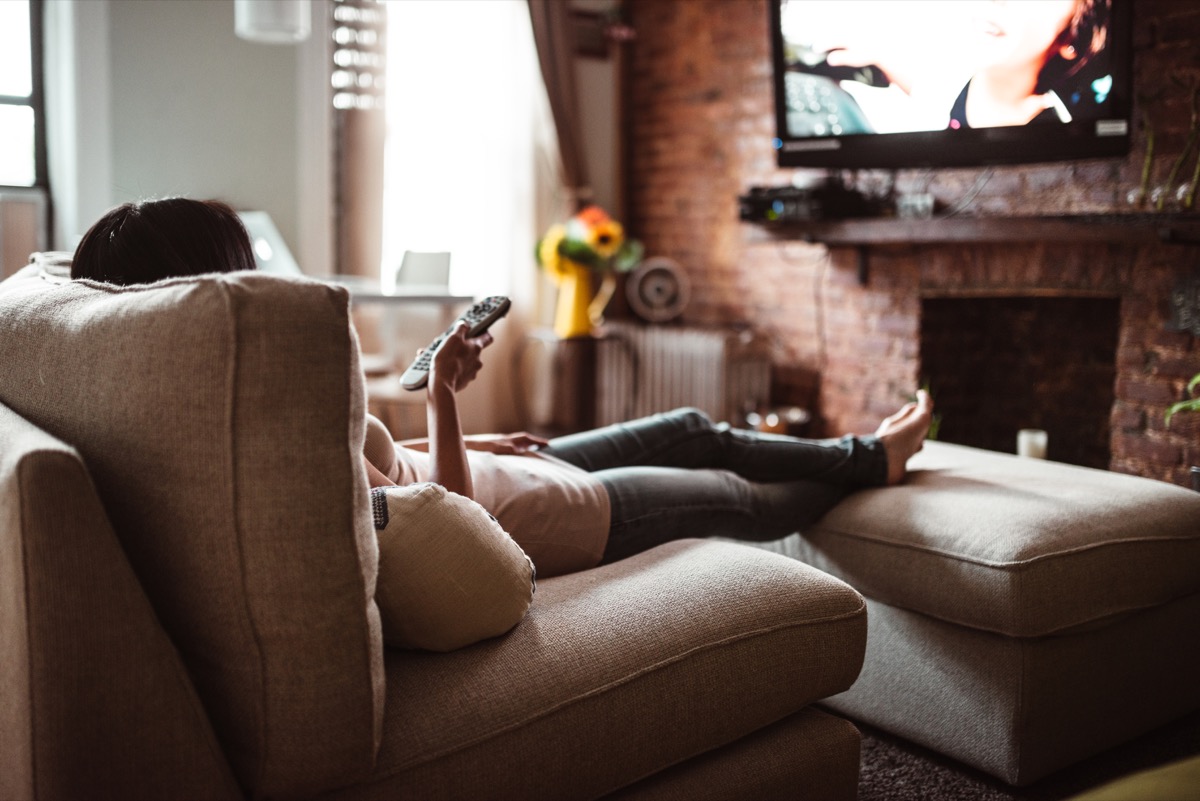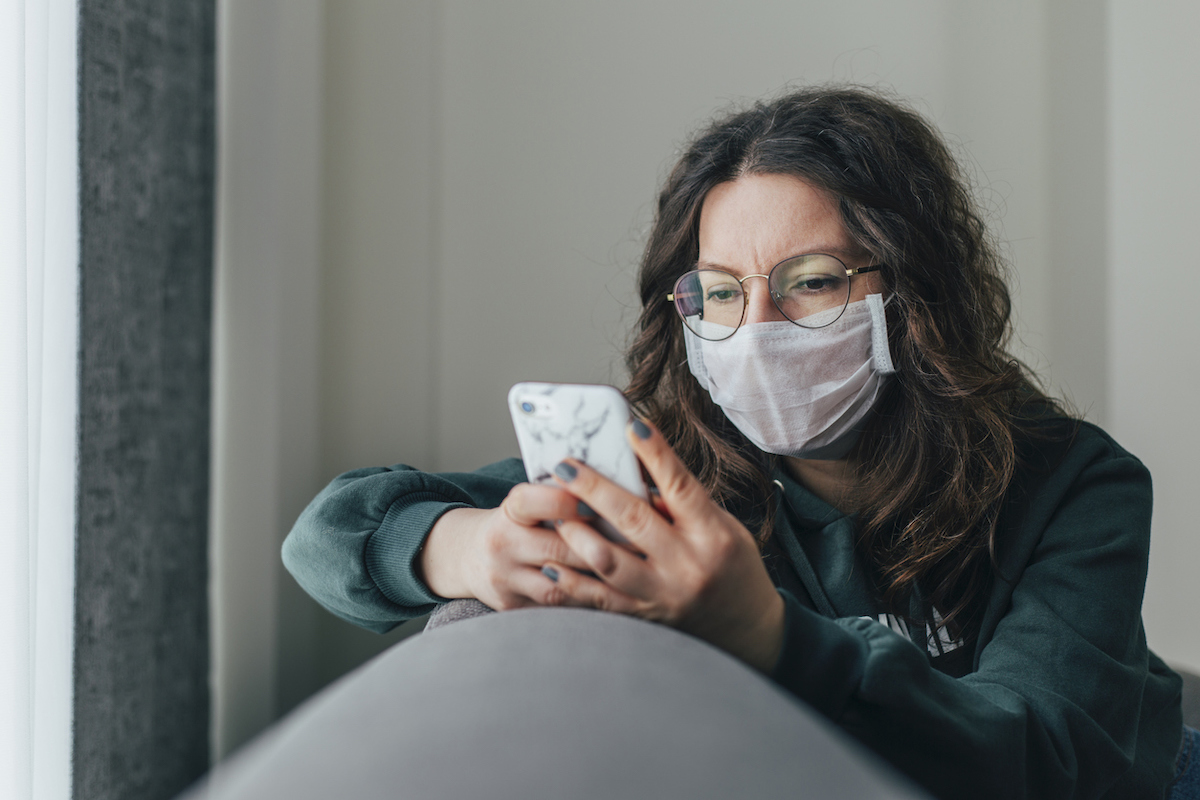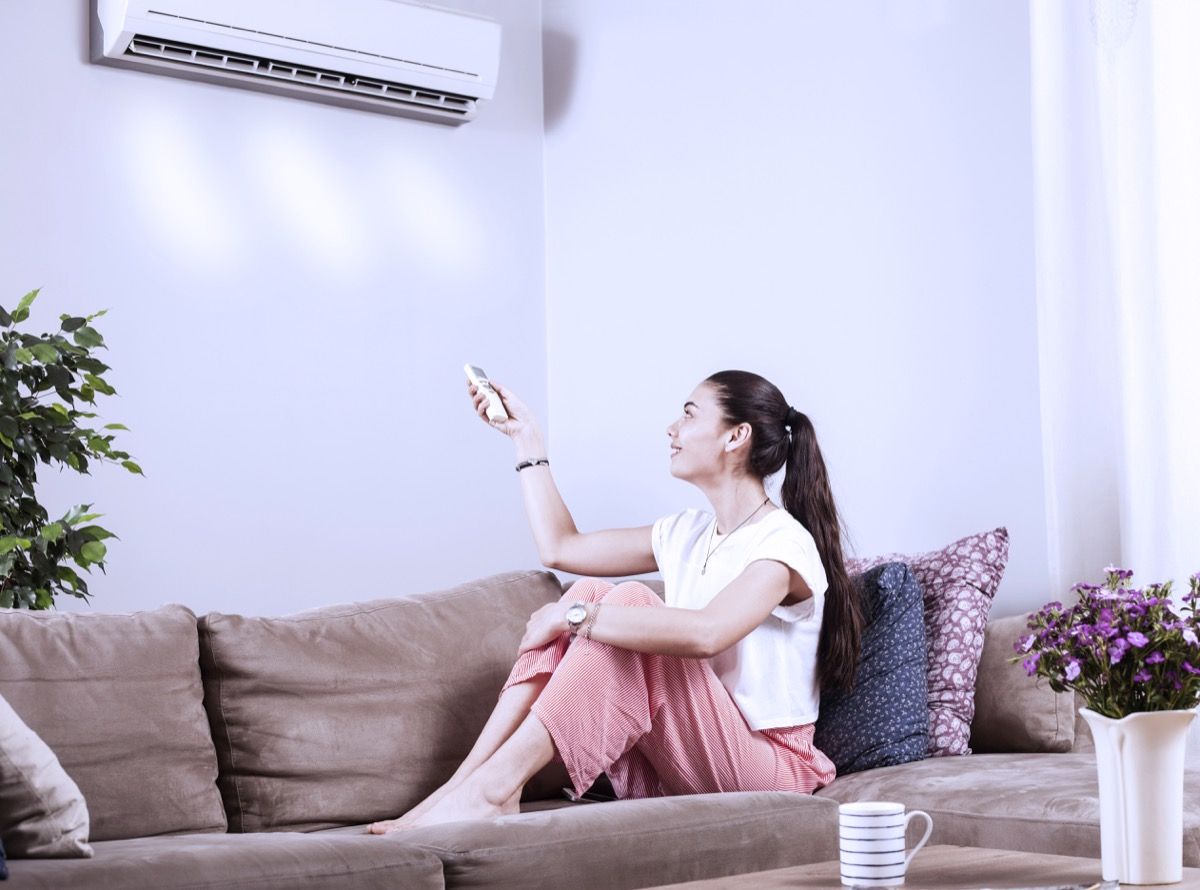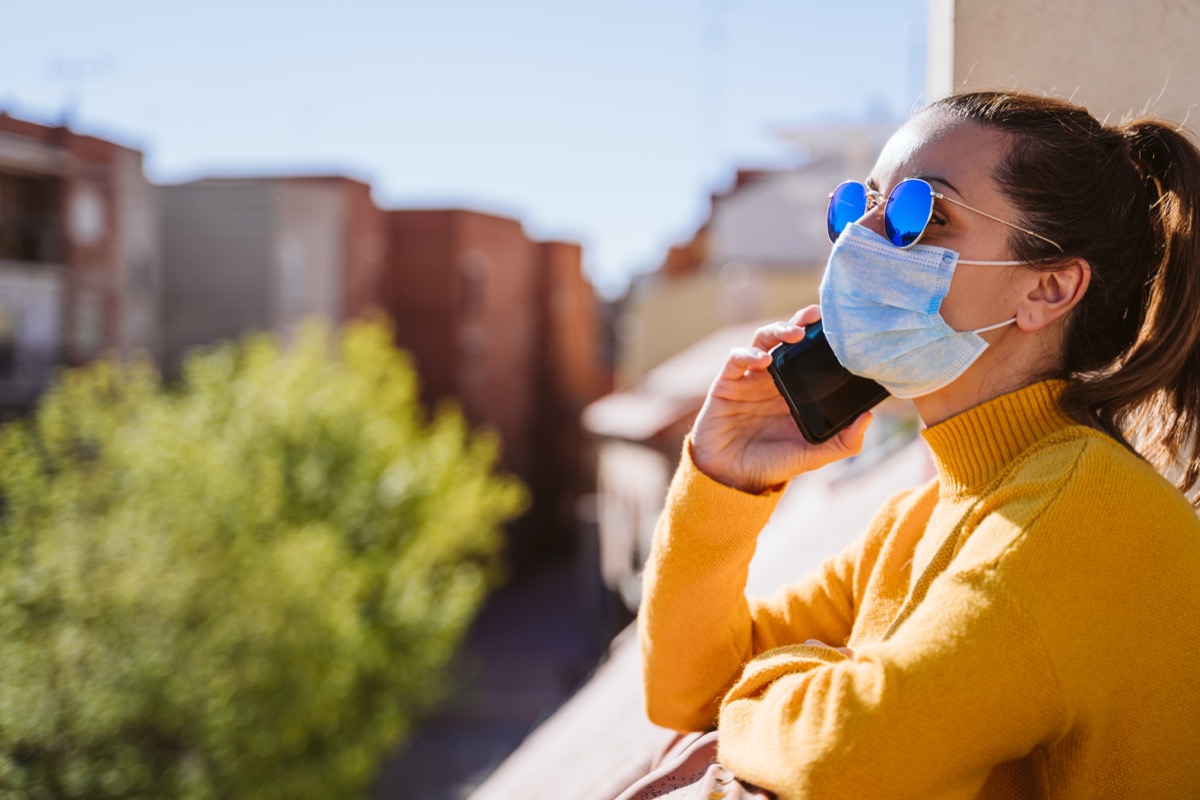But why is this so bad? According to the experts at Lone Star Vision, two problems arise with excessive streaming: the constant staring at the screen and the light that comes from that same screen. This can cause dry, itchy eyes, watery eyes, and even blurred vision. To combat these effects, Lone Star Vision recommends spacing out your streaming, which will reduce your stream time overall. And for some common misconceptions, here are 13 Health Myths About Your Eyes You Need to Stop Believing. It’s no surprise that smartphone usage has also gone up over the past months, as well. According to a Valassis report, mobile phone usage increased during typical work hours (because no one is peering over your shoulder to catch you checking Instagram, most likely), and also, people are using their mobile devices later at night than they had before. Unfortunately, a 2018 study published in the journal Scientific Reports found that excessive exposure to blue light—which phones cast—actually promotes the growth of poisonous molecules in our eyes that can lead to macular degeneration, an incurable eye disease that results in significant vision loss.ae0fcc31ae342fd3a1346ebb1f342fcb And all that working from home can lead to excessive exposure to blue light as well. But if you’re not taking breaks from your computer (and phone breaks don’t count!), you can also develop a condition called computer vision syndrome, according to Lone Star Vision. And while this problem isn’t as serious as the possible life-long complications from too much blue light, “it will continue to bother you and worsen unless the original cause is removed,” those experts say. And for more eye knowledge, check out the 17 Warning Signs Your Eyes Are Trying to Tell You About Your Health, You may want to blast the A/C while you’re staying indoors, but make sure you don’t keep it on too much. As optometrist Leigh Plowman previously told Best Life, air conditioning “reduces the relative humidity” in a room, which often contributes to what is known as “dry eye disease.” And according to the American Optometric Association, advanced cases of dry eyes disease can actually lead to impaired vision by causing damage to the front surface of the eye. And for more seasonal pandemic issues, This Is What’s Making COVID Worse In The Summer, Scientist Says. It’s easy to turn to your favorite unhealthy snacks when you’re staying inside, especially if they’re only a cabinet away. But try not to overdo it. According to the experts at NVISION Eye Centers, eating “whole foods containing eye-enhancing nutrients can help to ensure an individual is getting the nutrients they need to maintain proper vision and eye health.” Not only that, but eating an excessive amount of highly processed and high-fat foods can also actually increase your risk of eye problems. With a face mask covering half your face, you may not be keen to cover the rest of it with a pair of sunglasses. But you shouldn’t be forgoing this fashion accessory this summer, because not wearing sunglasses can leave your eyes vulnerable to UV rays from the sun. And, according to a National Eye Institute study from 2014, an excessive amount of this exposure can actually cause you to develop cataracts, which is a clouding of the eye lens that results in impaired vision. Maybe it’s a lack of sleep from your nights spent streaming, fidgeting while working from home, or the result of summer allergies—whatever it is, try to avoid rubbing your eyes. According to a 2019 study published in the International Journal of Ophthalmology, rubbing your eyes too hard or too often can actually damage them by causing keratoconus, a serious condition that can lead to distorted vision and may require future repairs. Keratoconus occurs when your corneas have been thinned, which weakens them and makes them become more cone-shaped. And for more up-to-date information, sign up for our daily newsletter.






